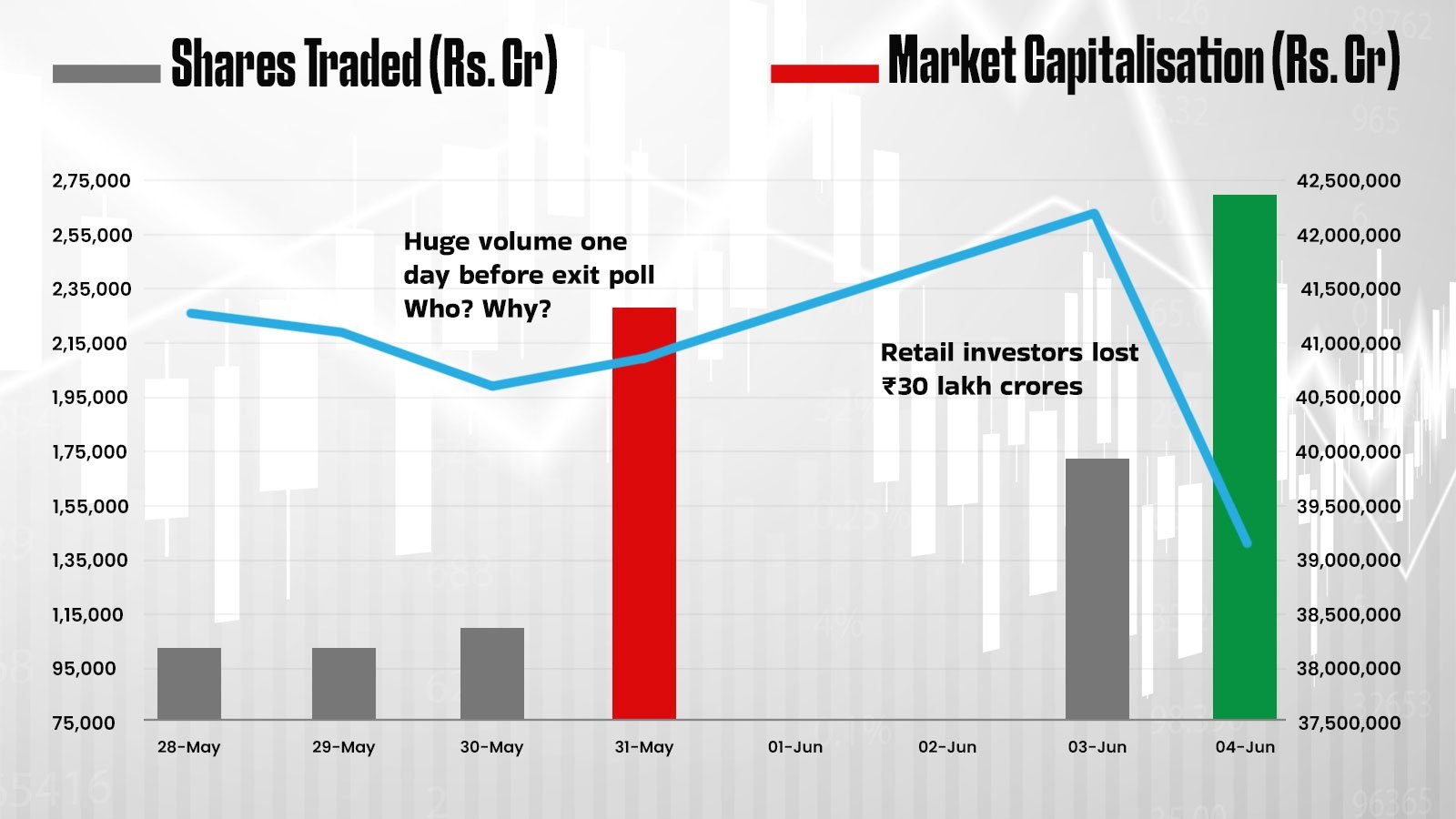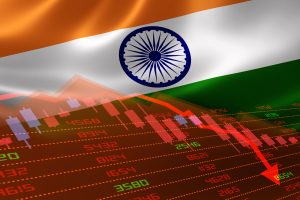Allegations of rigging opinion polls released before voting in elections have emerged from different parts of the world, as such polls may impact voter choices.
Manipulating exit polls is less heard of.
Exit poll results are released after voting in elections. They cannot influence voter opinion unless the election happens in phases and pollsters are allowed to publish early phase results before final phase polling. At the most, a rigged exit poll can demoralize opposition party workers before the counting process.
However, the Congress, India’s main opposition party, has alleged that rigging and/or insider trading involving exit polls in the recent Indian general elections led to the biggest stock market scam in its history.
Soon after the Indian parliamentary election results were out and even before the formation of the government, the Congress asked for a Joint Parliamentary Committee (JPC) probe into the unexplained rise and steep fall in India’s stock market between May 31 and June 4.
A JPC includes parliamentarians from both the ruling side and the opposition.
On June 4, retail (small) investors lost an estimated 30 trillion Indian rupees ($359.3 billion) as the stock market crashed with the news of Prime Minister Narendra Modi’s party failing to secure the majority on its own. The market had inexplicably risen on May 31.
The May 31 rise was curious and unexplainable, as stock value rose without anything special happening.
The final phase of the seven-phase Indian general election was scheduled the next day and exit polls were to be released from 6 p.m. onwards. Why foreign investors would suddenly pump in money a day before the exit polls remains a mystery.
The Election Commission of India allowed the publication of exit poll results only after elections in all phases were complete. Almost all exit polls predicted a landslide victory for the BJP, with some even predicting that the BJP-led National Democratic Alliance (NDA) tally would reach or cross 400 in the 543-seat House.
However, almost all opposition leaders had dubbed the exit polls a sham.
In the end, Modi’s BJP’s tally stopped at 240: 63 fewer seats than its 2019 tally and 32 short of the majority mark in the Parliament. Taking the numbers of all its allies together, the NDA has a slim majority of about 20 members.
What’s the Scam About?
In an article in Deccan Herald, Praveen Chakravarty, who heads the Congress’s data analytics wing, described it as “the world’s first Exit Poll Stock Market Scam.”
He pointed out that foreign investors, who have of late been net sellers in the Indian market, pumped in a lot of money on May 31 — accounting for 58 percent of all the buying of shares on that day. The exit polls were due the next day evening (Saturday).
The market soared when it opened on June 3 – a Monday – with retail (small) investors putting in their money. The market crashed on June 4. But foreign investors had taken out their money by that time, Chakravarty wrote. He suspects the foreign investors had prior information on the exit poll results.
“It is crystal clear through data that there was suspicious and mysterious stock market activity around exit polls and election results by which a group of foreign investors gained, and millions of Indian small investors lost wealth,” Chakravarty wrote.
The Congress has alleged that Modi and his closest confidante, Minister for Home Amit Shah, are involved in this “scam.” Its leaders have drawn attention to how Modi and Shah had advised people during media interviews to buy stocks before June 4, the result day.
In May, Modi said that the share market would soar on June 4, while Shah’s advice was more specific: “Buy stocks before June 4,” he said
Describing the stock market volatility as “the biggest stock market scam in India’s history,” Congress leader Rahul Gandhi asked why Modi and Shah gave investment advice to people. He asked why the two interviews were given to media houses owned by the same group, which is also facing a probe by regulatory authorities for alleged stock market manipulations.
The interviews were given to the NDTV group, which industrialist Gautam Adani’s conglomerate owns. Adani is perceived to be close to Modi since the latter’s days as the Gujarat chief minister.
“What is the connection between the BJP, the fake exit pollsters, and the dubious foreign investors, who invested one day before the exit polls were announced and made huge profits, at the cost of 5 crore [50 million] families?” asked Gandhi.

A graph tweeted by Congress leader Rahul Gandhi questions the huge surge in stock market investments on May 31.
The BJP has rubbished the charges. “Rahul Gandhi is conspiring to mislead investors,” alleged senior BJP leader Piyush Goyal. Goyal pointed out that the market had since recovered and retail investors have made money.
BJP parliamentarian Nitish Rane said that no one takes Gandhi seriously and he should “come up with facts and proofs.”
However, the Congress is not alone in demanding an investigation. The Trinamool Congress, the fourth-largest party in the parliament with 29 MPs, has already written to the regulatory authority, the Securities and Exchange Board of India (SEBI), seeking a probe.
Saket Gokhale, a member of the Rajya Sabha, the upper house of the Indian Parliament, asked the authorities to find out if entities making unusual profits during this period “have direct or indirect links with the BJP or with pollsters like Axis My India.”
Axis My India is one of India’s leading pollsters, but their figures were way off the mark.
“The exit polls were clearly manipulated to rally the stock market. Lakhs of crores of investors’ money was later wiped off yesterday after the markets crashed,” Gokhale alleged in a post on X, formerly Twitter.
Meanwhile, the fortune of one of the BJP’s principal allies has drawn curiosity.
The Telugu Desam Party (TDP) chief N. Chandrababu Naidu’s wife, Nara Bhuvaneshvari, earned 5.79 billion rupees ($ 69.3 million) in just five days, as stocks of Heritage Foods Ltd, in which she holds a 24.37 percent stake, soared.
While it appears that the Congress would push for a JPC probe during the upcoming monsoon session of Parliament, what response such a demand elicits from the BJP’s allies and other opposition parties remains to be seen.

































